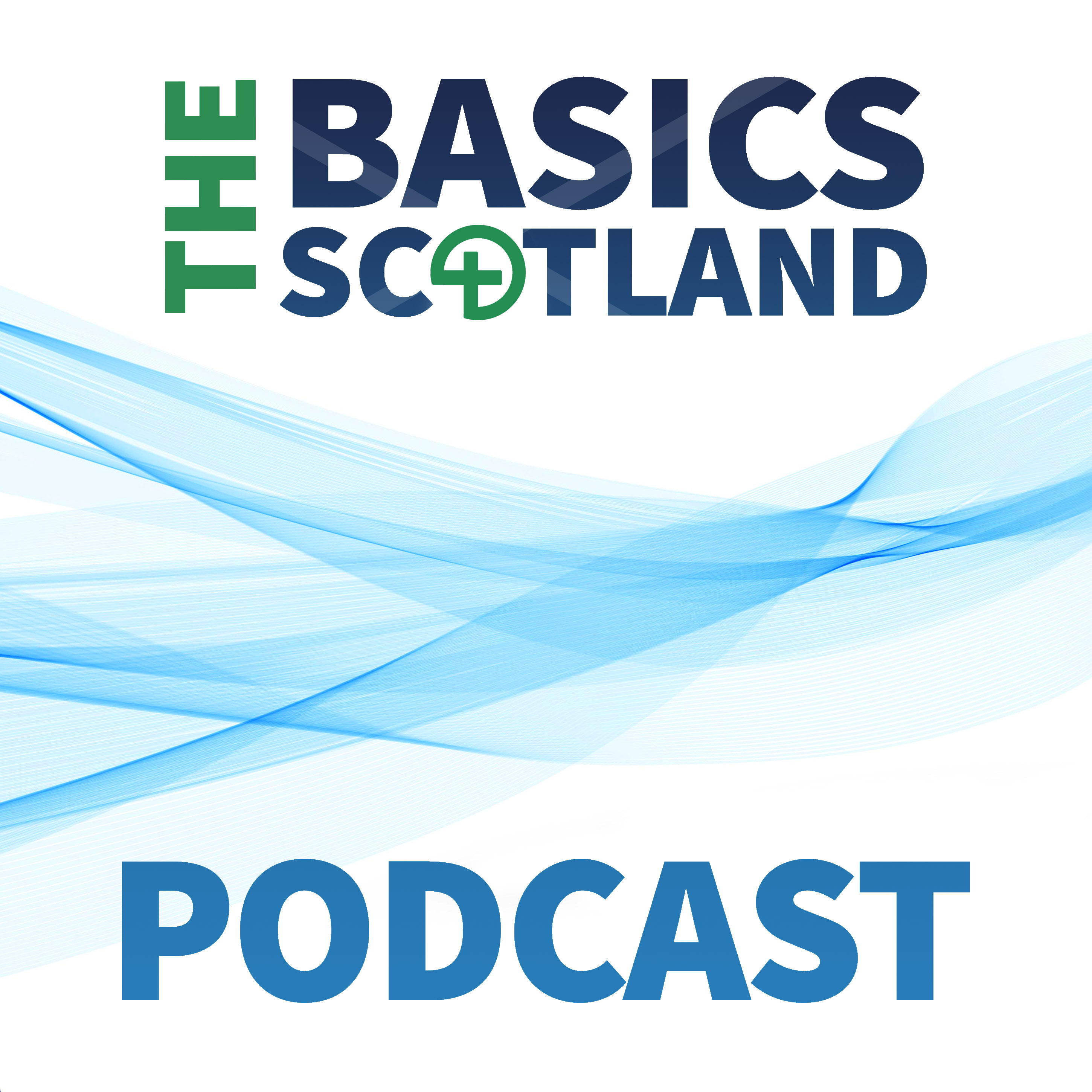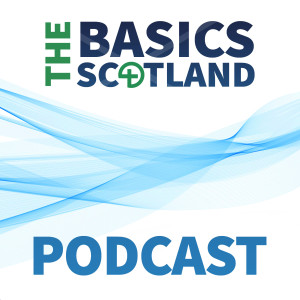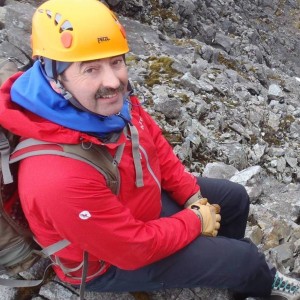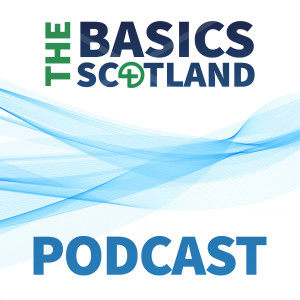
72.1K
Downloads
83
Episodes
Welcome to BASICS Scotland Podcasts - Conversations with a wide range Pre-hospital Emergency Care experts talking about medical topics that relevant to BASICS Scotland Responders and anyone interested in immediate care. Our podcasts are released weekly make sure to subscribe to listen to our latest releases. Do get in touch with your feedback, questions & ideas for future podcasts. More info here: https://basics-scotland.org.uk
Episodes

Wednesday Mar 10, 2021
Paul Rees – ROSC – Post Resuscitation Care
Wednesday Mar 10, 2021
Wednesday Mar 10, 2021
This week Paul Rees discusses ROSC and post resuscitation care, including post cardiac arrest syndrome and prognostication after cardiac arrest.
Key points from this podcast:
- Train and talk through these events. They are fairly rare and so practicing and talking through the motions is important to keep skills, roles and plans refreshed, thinking through all roles and likely challenges and outcomes
- Deliver slick, effective ALS and get help coming fast
- Have an exit strategy and have all the relevant phone numbers to hand
Resources related to this podcast:
Resus Council post-ROSC care – https://www.resus.org.uk/resuscitation-guidelines/post-resuscitation-care/#circulation
About Paul
Paul Rees is a military interventional cardioloist at Barts Heart Centre in London, with a special interest in circulatory support and resuscitation. He is also a HEMS consultant, flying for East Anglian Air Ambulance.
As a Surgeon Commander in the Royal Navy, he is their Consultant Advisor in Medicine, as well as Reader in the Academic Department of Military Medicine. He chairs the Defence Resuscitation Committee, leads the Defence Endovascular Resuscitation Group and has recently designed and delivered a new capability for treating battlefield haemorrhage.
He co-leads the new British Cardiovascular Intervention Society group looking at out of hospital cardiac arrest, and teaches as invited faculty on a number of international endovascular resuscitation workshops. Paul’s military background includes active service with submarines, combat deployment with Commando forces, being the airborne MERT consultant in Afghanistan and numerous humanitarian and disaster relief missions including work in an Ebola treatment unit in Africa.

Monday Mar 01, 2021
Duncan Tripp - UK SAR
Monday Mar 01, 2021
Monday Mar 01, 2021
In this podcast Duncan explains the role of Coastguard operations including the interaction with the Emergency Services and BASICS Scotland Responders.
Key points from this podcast:
- Escalate early via trauma desk to the ARCC
- Look at the online ISAR resource ahead of time
- Follow up any jobs and feedback
About Duncan
Duncan spent 35 years in the RAF in various roles mainly as a Winchman Paramedic in the UK SAR Force. During this time he was a Qualified Helicopter Crewman Instructor and Winchman Training Officer responsible for the training and standards of UK SAR Winchman both in their operational and medical roles. As a member of the RAF Mountain Rescue Service he took part in various worldwide expeditions, some as Medical Director or Expedition Leader.
With the responsibility for the UK SAR Force transferring to the MCA in 2015, Duncan left the RAF and continues to operate as a Winchman Paramedic, Instructor trainer and Base Clinical Lead.
He has a long-standing involvement with BASICS Scotland going back to 1996. Duncan is the Vice-Chair of BASICS Scotland, an Instructor, Responder and a member of the Clinical Governance Working Group. He is married to a very tolerant and forgiving wife.

Wednesday Feb 24, 2021
Ian Scott – Hypothermia & ECMO
Wednesday Feb 24, 2021
Wednesday Feb 24, 2021
Ian Scott discusses Extracorporeal Membrane Oxygenation (ECMO) and its role in hypothermia. Ian looks at the severe end of hypothermia and the management and pathways for these patients.
Top 3 Points from this podcast:
-
Do the basics really well – good patient assessment, Good ALS
-
Think could this be hypothermia? If you think it is a consideration then early contact to the Special Services desk through ambulance control stating that you have a potential hypothermic patient which will elicit the support and help you need.
-
Don’t get disillusioned and don’t give up, keep up good quality resuscitation and the top-level support will help with the decisions.
.
Resources related to this podcast:
Hypothermia Protocol Hospital PDF
About Ian
Ian is currently a critical care consultant and director of the respiratory ECMO service for Scotland. He is based in Aberdeen. He became a consultant in 2015. He graduated from Dundee University and undertook most of his training in the North East of Scotland. He has also spent time in the Brompton in London and worked for Sydney HEMS just after he finished his training.
Ian has an interest in pre-hospital care and also spent some time working for EMRS North. During his training, he became interested in using ECMO as a way to rewarm hypothermic patients. He has had several near misses while winter climbing as a student.
Ian’s spare time is spent with his family. His 2 young daughters and my his understanding wife Kim. Ian also enjoys cycling and being in the mountains when time allows.

Monday Feb 22, 2021
Paul Savage - Check Card Medicine
Monday Feb 22, 2021
Monday Feb 22, 2021
Paul chats us through the theory behind using checklists in the prehospital environment, why it is an important culture shift we should be moving to and how and why this method can reduce the pressure when you are operating under demanding conditions.
Top 3 tips:
1) Be robust, don’t be scared, don’t be scared to champion it and don’t be scared to defend it.
2) Try it, draw up your own check sheet and if you find it works for you, then champion it with your organisation.
3) Don’t be scared to use it on scene and revise it as you go along to make it work and honed to best version you can.
Resources:
https://www.saviourmedical.com/
BIOGRAPHY
Mr Paul Savage OBE BSc SRP – Managing Director Saviour Medical Ltd with a mixed portfolio.
Paul walked into a Lifeboat station on his 17th birthday and never left, initially volunteering at Poole and now at Tower Lifeboat in London.
With his interest in remote and maritime paramedical medicine he joined the RNLI full time in 2005 as the Clinical Operations Manager and Head of Operational Medicine. He was responsible for the operational medical response of all of the UK and Eire’s Lifeboat crew, Lifeguards and Flood Response teams, as well as the architect and custodian of the Clinical Governance of the RNLI. He advised on all matters casualty care related - from kit carried, casualty care course design to casualty-friendly boat design.
For a complete step change of maritime medicine around the UK, Paul was awarded an OBE in December 2013.
Since 2014 as a self employed consultant, Paul has a mixed portfolio of pre-hospital medical related work, including check card based learning resources, Clinical Governance of HM Coastguard and University Lecturing.
Paul is Chairman of the UK Search and Rescue Medical Group which shapes the future and direction of UK SAR medicine, and is a member of the Main Advisory Board and the Training and Standards Board of the Faculty of Pre-Hospital care of the Royal College of Surgeons (Edinburgh). He is also an instructor for specialist elite sections of the UK Military.

Wednesday Feb 17, 2021
Eric Pirie - Prolonged Care in the Field
Wednesday Feb 17, 2021
Wednesday Feb 17, 2021
As a longstanding member of Cairngorm Mountain Rescue Team, Eric Pirie talks through the issues arising from rescues that are protracted, and particularly focuses on prolonged care in the field, which may not be particularly familiar to BASICS Scotland Responders, but occurs fairly regularly in Mountain Rescue.
Key points from this podcast:
- Think about carrying and using a bothy bag (group shelter) to help protect your patient from the environment.
- Carry a head torch, a really useful piece of equipment
- Look after yourself by popping snacks into your pockets so that you can refuel on the go
Resources related to this podcast:
St Emlyns Blog for the H.I.T.M.A.N mnemonic and other useful info.
ProlongedFieldCare.org – A useful website, very military in nature, excellent principles.
SHEEPVOMIT nursing mnemonic described in the NSOCM Manual (NATO Special Operations Combat Medic) Course run by the ISTC SOF – International Special Training Center
About Eric
Eric is an International Mountain Guide (IFMGA), Mountain Instructor Certificate holder, Wilderness EMT and Paramedic, who has 25 years of experience working to the highest levels in the outdoors worldwide.
Eric joined the Cairngorm Mountain Rescue Team in 1982 and is still an active team member. Whilst working as an Instructor at Glenmore Lodge, The Scottish National Outdoor Training Centre, Eric was head of Rescue for 10 years. He also worked as a senior ski patroller, on Cairngorm for 7 seasons, when there was snow! He has been involved in numerous rescues both in Scotland and worldwide, gaining experience in longer term patient care whilst seconded to the National Park Service as a mountaineering/medical volunteer ranger, on patrol for a season, on Denali, Alaska. Eric now works full time for The Scottish Ambulance Service based from home in Grantown-on-Spey.

Monday Feb 15, 2021
Alison Gallagher - Cave rescue, who are they and what do they do?
Monday Feb 15, 2021
Monday Feb 15, 2021
Alison chats us through cave rescue in Scotland, what are the team skills, capabilities and responsibilities and how are they tasked?
Top 3 Points from this podcast:
- Work within what you are comfortable with
- Be aware that these are usually very protracted events
- Remember that the Cave rescue team is able to provide help and resources in these circumstances
About Alison
Alison is a GP based in Dundee, and also works in Ninewells ED as a GP with a specialist interest in emergency medicine.
She is a team doctor for Tayside Mountain Rescue and medical officer for the Scottish Cave Rescue Organisation.
She enjoys adventures above and below ground, often with her husband and two sons.

Wednesday Feb 10, 2021
Wednesday Feb 10, 2021
Dr Paddy Morgan talks to us about accidental hypothermia, what is it? How can we recognise it and how can we treat it in the prehospital environment.
Top 3 Points from this podcast:
- Keep yourself safe, keep your team safe and that means you can effect rescue for your casualty
- Shivering is a key triage tool in hypothermia
- Plan ahead and think about the 2’s, where do I want to be in 2 mins, 20 mins and 2 hours, call for back up early, call ahead to the ECMO centre early to get the teams ready to receive your patient.
Resources related to this podcast:
Accidental Hypothermia – an update
Accidental hypothermia Part 1- an update
Paddy is a Consultant Anaesthetist and Trauma Team Leader based in Bristol (UK), and Consultant with Emergency Medical Retrieval and Transfer Service (EMRTS) Cymru, and Great Western Air Ambulance.
Prior to his medical studies, Paddy worked summer seasons as a surf lifeguard and went onto to instruct and mentor at a national level, retaining an active role in flood/swift water rescue. He is the honorary medical advisor to Surf Lifesaving GB, member of the UK governments Search and Rescue (UKSAR) Advisory Medical Group, previously sat on the Royal National Lifeboat Institute’s Medical & Survival Committee, is a member of the International Life Saving Federation’s (ILS) medical advisory committee, an Invited Honorary Member of the International Drowning Research Alliance (IDRA), and is Medical Director for HM Coastguard.
As a postgraduate student and independent medical officer for the Extreme Environment Laboratory at the University of Portsmouth, his areas of research interest include drowning, the cardio-respiratory responses to immersion and submersion in cold-water, hypothermia and the response of the human body in extreme environments. He has lectured internationally and has several publications related to these subjects.

Wednesday Feb 03, 2021
Martin Esposito - Pain Relief
Wednesday Feb 03, 2021
Wednesday Feb 03, 2021
In this week’s podcast Martin Esposito talks about pain assessment and management. The discussion explores the definition of pain, and the biological and psychological complexities associated with something that is physical yet subjective in perception. Martin looks at the importance of ongoing pain assessment and explores the options in pre hospital pain relief; after discussing analgesia he sets out why pain control is more than medication administration.
Key points from this podcast:
- Remember that pain is more than a just physical symptom
- The importance of assessing pain as assessing well means you can treat it
- Provide pain relief and treat it adequately using all the tools in your toolkit
Resources related to this podcast:
Transition from acute to chronic pain – BJA Education – https://academic.oup.com/bjaed/article/15/2/98/248869
Chronic Pain – Is it All in Their Head? – Daniel J. Clauw M.D – https://www.youtube.com/watch?v=B0EhNajqkdU
About Martin
Martin is the Clinical Effectiveness Lead for Major Trauma for the Scottish Ambulance Service. He has worked within ambulance services in the UK for over 23 years gaining a wealth of experience in a variety of roles.
Since qualifying as a paramedic in 2000 he has worked as an Emergency Care Practitioner, was seconded to the Physician Response Unit in London as well spending time as a flight paramedic for London’s Air Ambulance.
He has also spent a number of years in education and is an examiner on the Diploma in Immediate Care.
Martin has a special interest in pain management and in 2018 completed an MSc in pain management at Cardiff University and has since become an Honorary Tutor on the Pain Management programme at Cardiff.

Wednesday Jan 27, 2021
Jon McCormack – Paediatric Cardiac Arrest
Wednesday Jan 27, 2021
Wednesday Jan 27, 2021
Consultant Paediatric Anaesthetist, Jon McCormack, explores the rare occurrence of paediatric cardiac arrest; he talks through the CRASH algorithm and emphasises the importance of cognitive aids and good airway positioning.
He also explains why, with a couple of caveats, in these situations it’s ok to see children as small adults.
Key points from this podcast:
- Cognitive aids are really important, know what cognitive aids you have available, become familiar with where they are and how you use them……. and use them.
- Do the basics well with airways, and practice the techniques regularly.
- You are not on your own, know your pathways for guidance and advice and call them for help for anything from attending the incident through drug calculations to decision making, the support network is there, know your support pathways.
- In resuscitation think of children are just being small adults
Resources related to this podcast:
Paediatric TCA paper: https://emj.bmj.com/content/35/11/669.long
30/60/90 reference guideline for resus in drowning (Credit: National Operation Guidance on Water Rescue & Flooding)
About Jon
Jon is a Consultant Paediatric Anaesthetist at the Royal Hospital for Sick Children in Edinburgh.
He graduated from Dundee University in 1998 before completing his Anaesthetic training in South East Scotland and a Paediatric Anaesthetic Fellowship in Vancouver.
He is a Clinical Lead for Paediatric Trauma in the South-East Scotland Trauma Network and a member of the Scottish Trauma Network Paediatric Core Group and the national Mass Casualty-Major Incident planning group.
Jon is also the Deputy Lead Examiner for the Diploma in Retrieval and Transfer Medicine (RCSEd) and is on the EMRS organising committee of the annual Retrieval Conference.
His three children, generally keep him busy out of work but whenever time allows Jon is a keen cyclist and whenever snow allows, a very keen skier.

Monday Jan 25, 2021
Christine Proudfoot - Dementia and related diseases in the emergency setting
Monday Jan 25, 2021
Monday Jan 25, 2021
Christine talks us through dementia, what is it? What common forms may we come across and how does delirium differ? And how do we best manage and treat patients with dementia in the pre-hospital emergency setting?
Top 3 tips:
• Stay calm, a smile and touch is reassuring, maintain eye contact.
• Use words which ask for a simple answer
• Engage with relevant others where possible to ensure wishes are supported and the person feels safe
Links and resources:
Information on section 47
https://www.gov.scot/publications/section-47-certificate/
Dementia MKN
http://www.knowledge.scot.nhs.uk/dementia/organisations.aspx
Think capacity, think consent (link for further learning)
https://www.nes.scot.nhs.uk/media/fqca5enl/capacity_and_consent-interactive.pdf
Dementia standards
Standards for care for dementia in Scotland
Alzheimers Scotland
Adults with incapacity Act (2000)
https://www.legislation.gov.uk/asp/2000/4/contents
